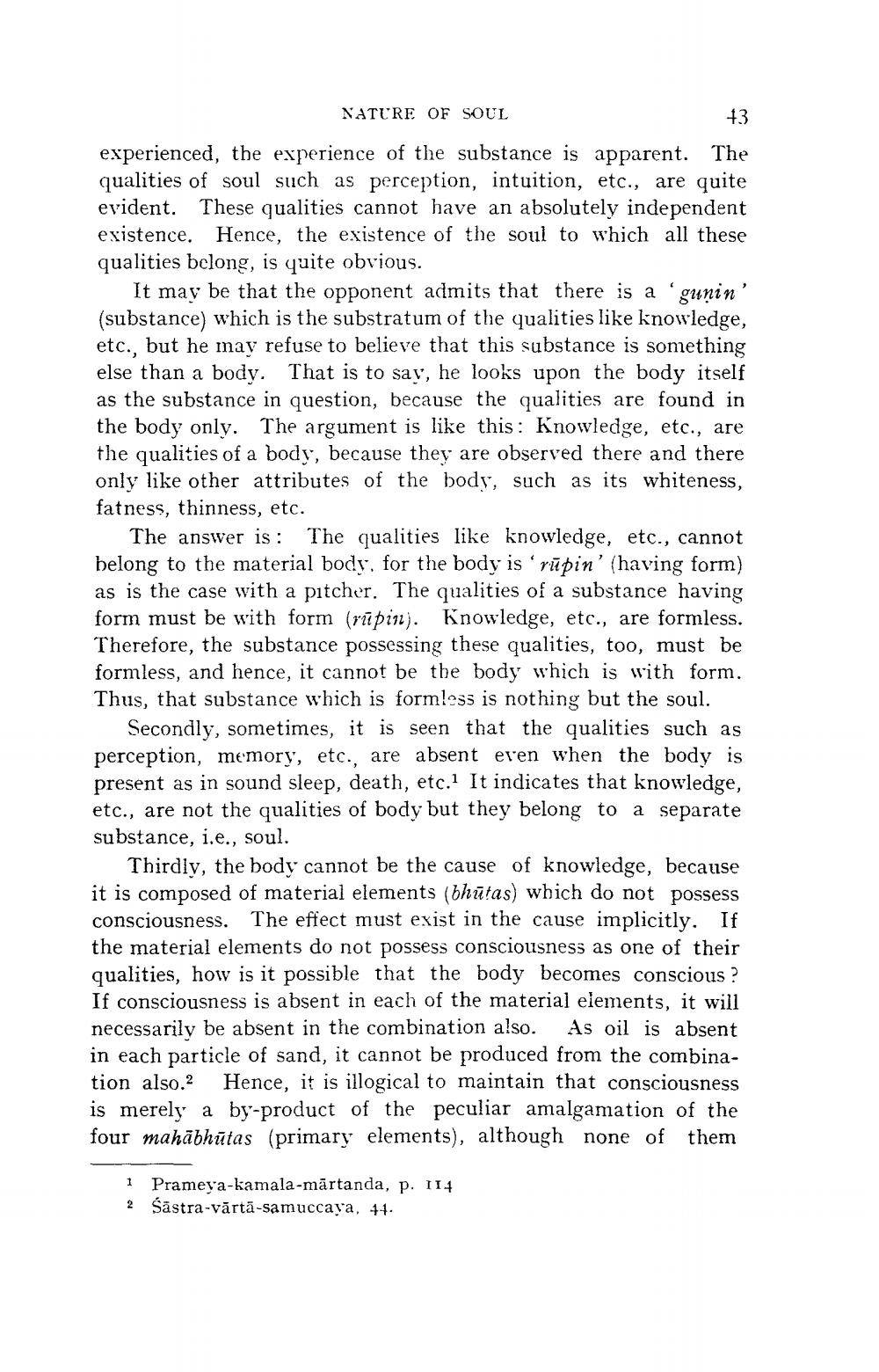________________
43
experienced, the experience of the substance is apparent. The qualities of soul such as perception, intuition, etc., are quite evident. These qualities cannot have an absolutely independent existence. Hence, the existence of the soul to which all these qualities belong, is quite obvious.
NATURE OF SOUL
It may be that the opponent admits that there is a 'gunin' (substance) which is the substratum of the qualities like knowledge, etc., but he may refuse to believe that this substance is something else than a body. That is to say, he looks upon the body itself as the substance in question, because the qualities are found in the body only. The argument is like this: Knowledge, etc., are the qualities of a body, because they are observed there and there only like other attributes of the body, such as its whiteness, fatness, thinness, etc.
The answer is: The qualities like knowledge, etc., cannot belong to the material body, for the body is 'rupin' (having form) as is the case with a pitcher. The qualities of a substance having form must be with form (rupin). Knowledge, etc., are formless. Therefore, the substance possessing these qualities, too, must be formless, and hence, it cannot be the body which is with form. Thus, that substance which is formless is nothing but the soul. Secondly, sometimes, it is seen that the qualities such as perception, memory, etc., are absent even when the body is present as in sound sleep, death, etc.1 It indicates that knowledge, etc., are not the qualities of body but they belong to a separate substance, i.e., soul.
Thirdly, the body cannot be the cause of knowledge, because it is composed of material elements (bhūtas) which do not possess consciousness. The effect must exist in the cause implicitly. If the material elements do not possess consciousness as one of their qualities, how is it possible that the body becomes conscious? If consciousness is absent in each of the material elements, it will necessarily be absent in the combination also. As oil is absent in each particle of sand, it cannot be produced from the combination also.2 Hence, it is illogical to maintain that consciousness is merely a by-product of the peculiar amalgamation of the four mahābhūtas (primary elements), although none of them
1
Prameya-kamala-martanda, p. 114
2 Śästra-vārtā-samuccaya, 44.




